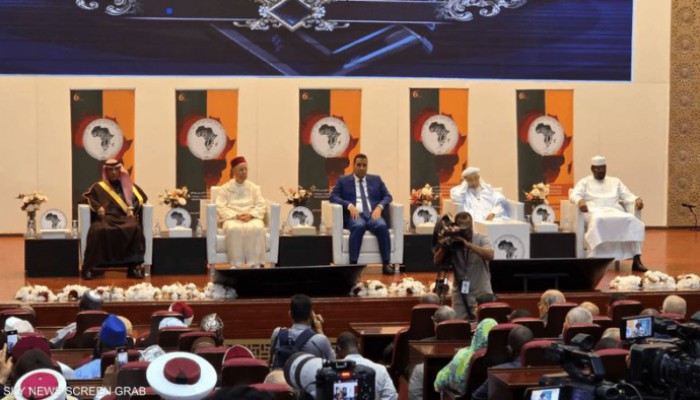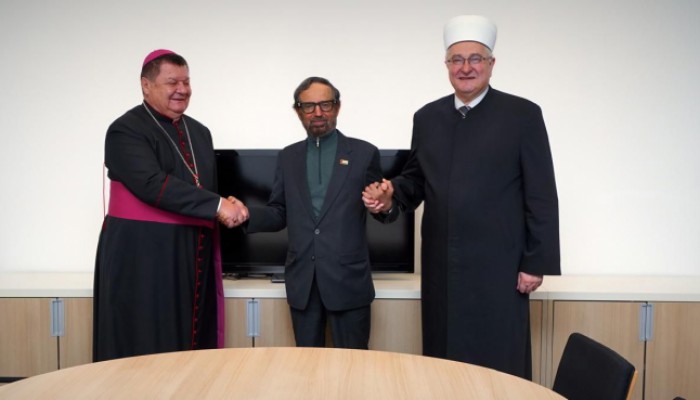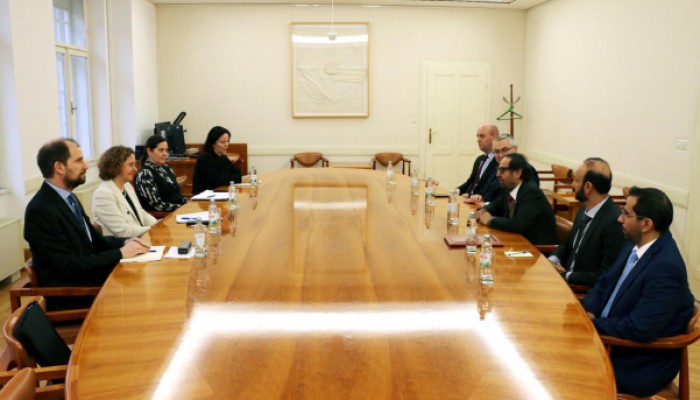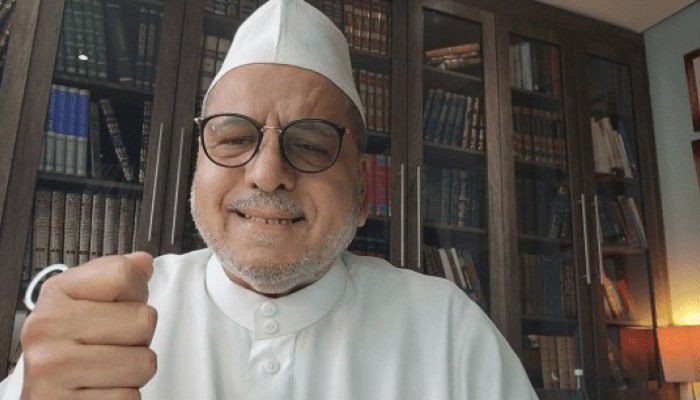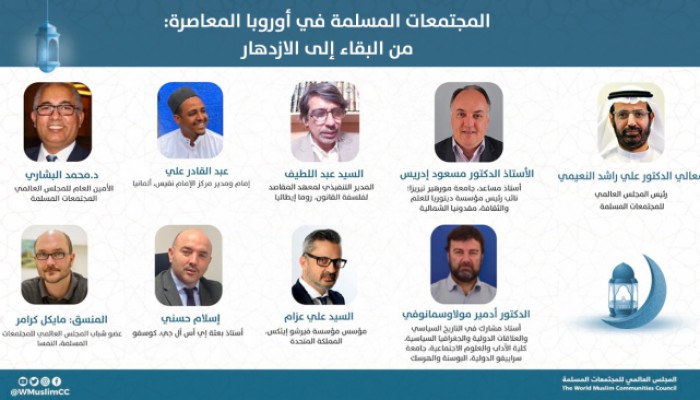
The Council Organizes Virtual Ramadan Symposium "Muslim Communities in Contemporary Europe: From Survival to Flourishing"*
- 2022-Apr-19
On Saturday, April 16, 2022, The World Muslim Communities Council World Council organized a virtual Ramadan seminar entitled "Muslim Communities in Contemporary Europe: From Survival to Flourishing".
The symposium witnessed the participation of personalities interested in the issue of religions in Europe, such as His Excellency Dr. Ali Rashid Al Nuaimi, Chairman of The oWorld Muslim Communities Council; Dr Admir Mulaosmanović , Associate Professor of Political History, International Relations and Geopolitics, Faculty of Arts and Social Sciences, International University of Sarajevo, Bosnia and Herzegovina; and Prof. Dr. Mesut Idriz, Adjunct Professor, University of Morher Teresa ;Deputy President, Dituria Foundation for the Science and Culture, North Macedonia
The symposium was also attended by Mr. Abdul Latif. Executive Director of Maqasid Institute of Philosophy of Law, Rome Italy; Mr. Ali Azam, Founder, Virtue Ethics Foundation, United Kingdo; and Abdulkadir Ali, Imam and administer, Imam Nafis Center, Germany.
In his speech, His Excellency Dr. Ali Rashid Al Nuaimi, Chairman of The of World Muslim Communities Council, said that Muslims around the world face challenges, especially in Europe in light of the current events that the world is going through, so Muslims must be part of the solution within a society that adds value to the nations in which they live.
Al-Nuaimi added that one of the main challenges faced by Muslims in Europe is the identity crisis, pointing out that there is no conflict between religious identity, national identity and European identity, as each complements the other.
The Chairman of The World Muslim Communities Council stressed that some politicians in Europe consider immigrants a source of danger, while others believe that most of the labor that Europe needs to achieve prosperity and progress comes from immigrants, and most of them come from Islamic countries.
As Mr. Abdulkadir Ali, Imam and administer, Imam Nafis Center, Germany, said that we must understand that Muslims are an integral part of German society, and that they have a constructive role in German society.
Ali added during his speech at the symposium that some funded groups attract Muslim youth, so we must educate these young people and urge them to have a positive role in society.
Dr. Islam Hasani, Professor The Mission of College ESLG, Kosvo, explained that Muslims in Kosovo are a majority and not a minority, and that all religious activities and schools in Kosovo are under the control of the Mufti.
Hasani added that there is an organized Islamic life in Kosovo, and 6 high schools that teach religious jurisprudence, stressing their focus on the common aspects between Muslims and the rest of the population with the aim of achieving prosperity, noting that the government does not contribute financially and that all funds come through donations.
Mr. Ali Azam, Founder, Virtue Ethics Foundation, United Kingdom, stressed that Muslims in the West must coexist with others and integrate with other cultures, because belief in pluralism is important to achieving prosperity.
Azam explained that Islam is a comprehensive religion, and this is the methodology that we must follow and emphasize in our speeches, adding that Muslims have many opportunities in Britain.
While Mr. Abdul Latif. Executive Director of Maqasid Institute of Philosophy of Law, Rome Italy, said that as Muslims we want our attention to include prosperity and not to be satisfied with mere survival, but to have a holistic approach to prosperity.
Abdul Latif added that the number of Muslims in Italy has reached 2 million, and they hold the highest positions, and Islam is the second largest religion after Catholicism, stressing the existence of many researches to support Muslims and Islam in Italy.
Prof. Dr. Mesut Idriz, Adjunct Professor, University of Morher Teresa ;Deputy President, Dituria Foundation for the Science and Culture,North Macedonia, emphasized that Islamic civilization was not able to spread in Andalusia.
Idriz pointed out that there was no significant presence of Muslims in Andalusia, unlike the Balkans. He stated that he went to India and gave many lectures on Islam, as he spent years in Bosnia and watched how Muslims live, stressing the need for us to have the necessary understanding to integrate the curricula of the Islamic principles into the school curricula.
At the conclusion of the symposium, Dr Admir Mulaosmanović , Associate Professor of Political History, International Relations and Geopolitics, Faculty of Arts and Social Sciences, International University of Sarajevo, Bosnia and Herzegovina, said that Muslims in Europe lived a diverse life, and that multiculturalism does not negatively affect Muslims, but rather the problem lies in Islamophobia.
Mulaosmanović added that we must unite to spread the idea that Islam and Muslims do not represent any danger to Europe, and we must correct the idea of some that Muslims pose a danger to the church, stressing that it is our duty to spread the values of tolerance, non-militance, and unity to solve these problems.




